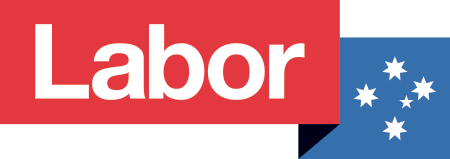Ms BYRNES (Cunningham) (16:05): Here we go again. Over the past hour we've seen the chalice of cooker Kool Aid be passed throughout the opposition benches, each one taking a nice big sip of climate denial and then spouting harmful misinformation and driving deliberate division in our regional communities. It is the decade of energy policy chaos from those opposite that has Australians paying the price for their inaction. Their 22 failed energy policies are costing regional Australians because we now have an energy sector that is vulnerable to international price spikes and ageing coal-fired power stations, with 24 of 28 announcing their closure under their watch.
But don't worry, the Albanese Labor government is fixing the mess left behind by the former government's decade of denial, delay and dysfunction. Our reliable renewables plan is the only plan supported by experts to deliver the clean, cheap, reliable and resilient energy system that Australians deserve. We are maximising cheap, clean energy, with a plan to get our national energy grid to 82 per cent renewables by 2030. We've already delivered a 25 per cent increase in the national energy grid in just two years and we have ticked off enough renewable project to power more than three million homes.
We're investing in battery storage and transmission to ensure reliable power can be accessed everywhere. We're modernising our national electricity grid and delivering over 400 new community batteries for increased reliability across the country, including in my electorate in the suburb of Warrawong and in the member for Whitlam's electorate in Dapto. We're ensuring the benefits of reliable renewables are shared with households and businesses.
We're also creating thousands of jobs with the Future Made in Australia policy. It is estimated that over 60,000 people could be directly employed in new energy infrastructure by 2050. These are good, well-paid, secure jobs of the future for our kids and for our regions. Our renewable energy transformation will require five billion tonnes of steel alone between now and 2050, which will support Illawarra workers at the Port Kembla steelworks.
The usual diatribe from those opposite would have you believe that renewable energy is this big, bad, scary creature. And no, I'm not talking about the opposition's frontbench. Instead of dividing the community, we are bringing them along with us and we saw 330,000 rooftop solar installations last year alone. That is because Australians know that the cheapest and most reliable forms of energy are renewables.
If you listen to those opposite you might also think that renewables are bad for our farms and our oceans but—you guessed it—climate change is the biggest threat to Australia's agricultural sector. According to the Intergovernmental Panel on Climate Change, climate change has slowed the growth of agricultural productivity globally over the last 50 years with further warming projected to increase food insecurity and supply instability.
I know that those opposite have had a hard time believing our national and international science institutions. Maybe they'll listen to Professor Gregory Andrews, Australia's first Threatened Species Commissioner and a Dharawal man, who said:
The science shows Australia's whales do face serious threats—but not from wind farms. By reducing our reliance on fossil fuels, wind farms help protect ocean habitats from the impacts of rising temperatures and ocean acidification.
The only thing stronger than Australia's abundance of sunshine and natural resources is the opposition's ability to backflip on their policy positions. The member for New England, who has become the poster child for the antirenewables movement, is about as flexible as they come. Delivering an address to the Clean Energy Council Australian Clean Energy Summit in 2017, he said: 'What can I say about renewable energy? It's the great effect it is having on my electorate. You see, at Glen Innes, in excess of $1 billion going to be invested in renewable energy.' A backflip of that degree would have earned him gold at the Olympics.
But that's not all. Not only do they want to dispel the cheapest form of energy; those opposite also want to serve up nuclear, the most expensive form of energy there is, and make regional Australians pay for it. Experts agree that Dutton's nuclear plan is too expensive, too slow to build and too risky. The Albanese Labor government's reliable renewables plan is the only plan supported by experts to deliver the clean, cheap, reliable and resilient energy systems that Australia deserves.
The DEPUTY SPEAKER ( Ms Claydon ): The discussion has now concluded.


